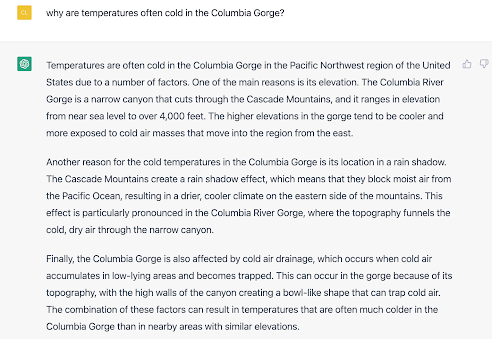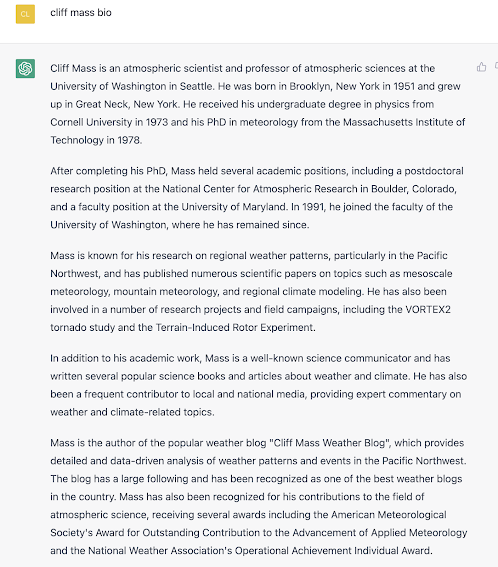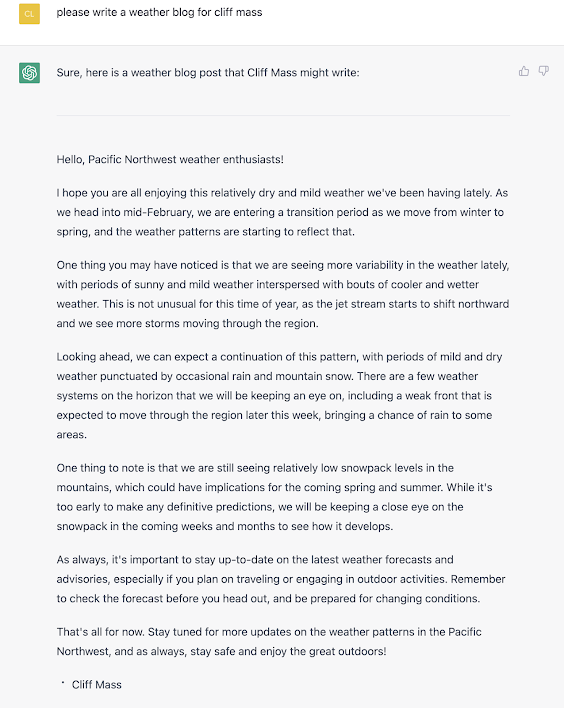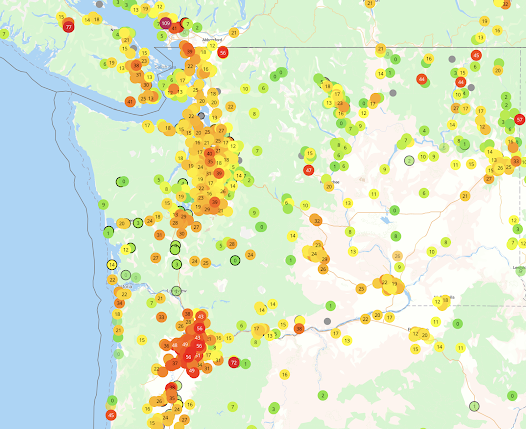Can You Trust Machine Learning Chat Applications for Weather Information?
Today, machine learning (ML) applications such as chatGPT are all the rage, with folks worried about the displacement of humans, bogus homework, and more.
So I was not a little curious to evaluate OpenAI's chatGPT abilities in the meteorological realm.
My conclusion: human meteorologists currently don't have much to worry about.
ChatGPT can produce reasonable-sounding prose that is often totally wrong.
For example, I asked it about the origin of the all-important Puget Sound convergence zone (see below).
According to chatGPT convergence zones occur when ocean air collides with drier air from the eastern part of Washington State. Wrong. The Puget Sound Convergence occurs when marine air moves around the Olympics and then converges (comes together) east of the Olympics, forcing air upwards (and thus producing clouds and precipitation). Zero for chatGPT
Then I thought I would give it an easy one...why Bellingham is often cold. The answer is that cold air from the interior can jet out of the Fraser River Valley, a low-level passage through the Cascades. ChatGPT came up with a crazy answer having to do with rain shadowing by local mountain ranges. Totally bogus.
In summary, chatGPT's performance was generally quite poor and one has to be VERY careful before believing its often convincing prose.









Comments
Post a Comment